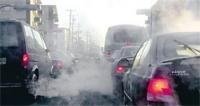Assemblée nationale: Maurice Île Durable - A new law to regulate CO2 emissions

The Excise (Amendment) Bill, introduced by the Deputy Prime Minister and Minister of Finance, was passed with amendments in Parliament on Tuesday night.
This bill, it must be emphasized, was the consensus between the majority and the opposition. This new law seeks to change the system of excise duty of cars based on the ability of their engines, taking into account their issue carbon dioxide. Thus, the Excise Act was amended to, in addition to the tax Excise Duty on cars, there is also the imposition of a CO2 Levy or a 'CO2 rebate' is granted.
The ceilings on CO2 emissions will, by December 2012, 158 grams per kilometer. This same cap that will be used, but it will subsequently be revised to reflect the structure of imports of new cars.And calculation of CO2 emissions will be made jointly by the Ministry of Finance and the Mauritius Revenue Authority.
CO2 Levy said Pravind Jugnauth, will be taxable if the emission of carbon dioxide per km exceeds the threshold of 158 grams per kilometer . And the proposed rate is Rs + 2.000 gram /km for cars whose emission varies from 159 to 190 grams of CO2 per kilometer, + Rs 3.000 per gram / km for emissions from 191 to 225 grams of CO2 / km, + Rs 4,000 per gram / km for emissions from 226 to 290 grams of CO2 / km and Rs + 5.000 gram / km for emissions exceeding 290 grams of CO2 per kilometer.
The amount will be paid in indeed, the difference between the number of grams of CO2 per km 'of a car and the ceiling of 158 grams CO2 per kilometer, multiplied by the rate of CO2. For example, for a car that emits 168 grams / km, is an amount of Rs 20,000 which will be paid. On the other hand, the rebate is calculated in the same way.
Moreover, to remove an anomaly on the taxation of 'double space cabin vehicles', now a vehicle of this type that is fully assembled is subject to a' excise rate 'of 40% while a vehicle that is imported separately from the housing is subject to an' excise rate 'of 10%. And, today, announced the Minister of Finance, a flat rate of 20% will be applied.
If the bill has the support of the Opposition, there is, however, questions that arise. What will it take to other types of vehicles such as buses, trucks, factories, the CEB, the independent power producers? Also, do companies or taxis, for example, will not pass the additional cost to customers? But just to summarize, the finance minister said he will find a formula to other types of vehicles.
Nouvelles connexes


